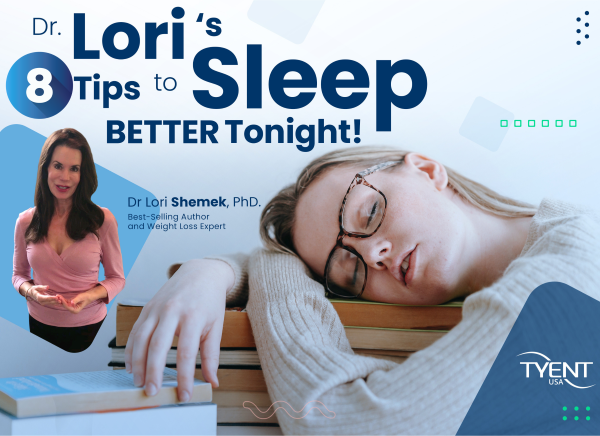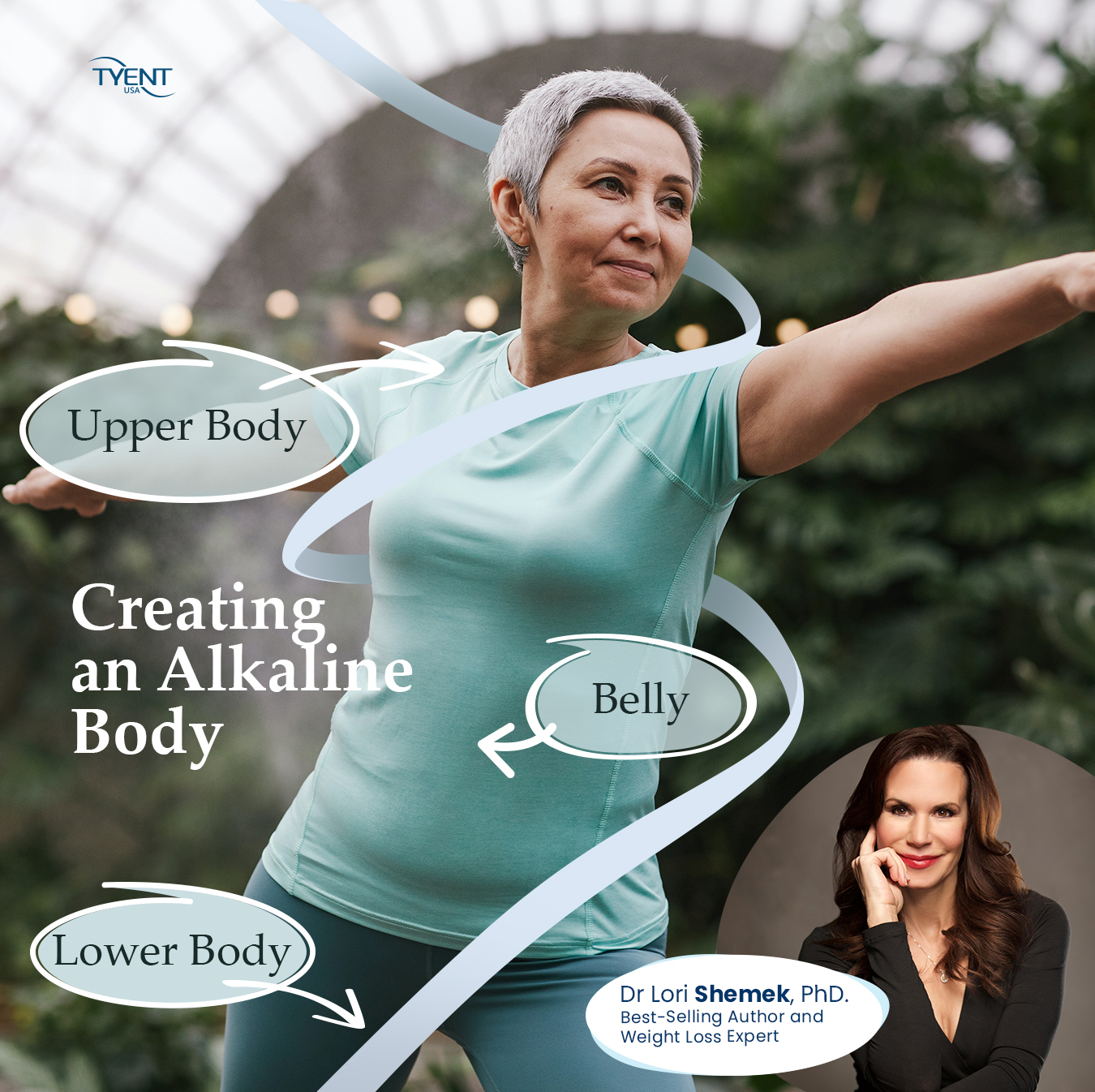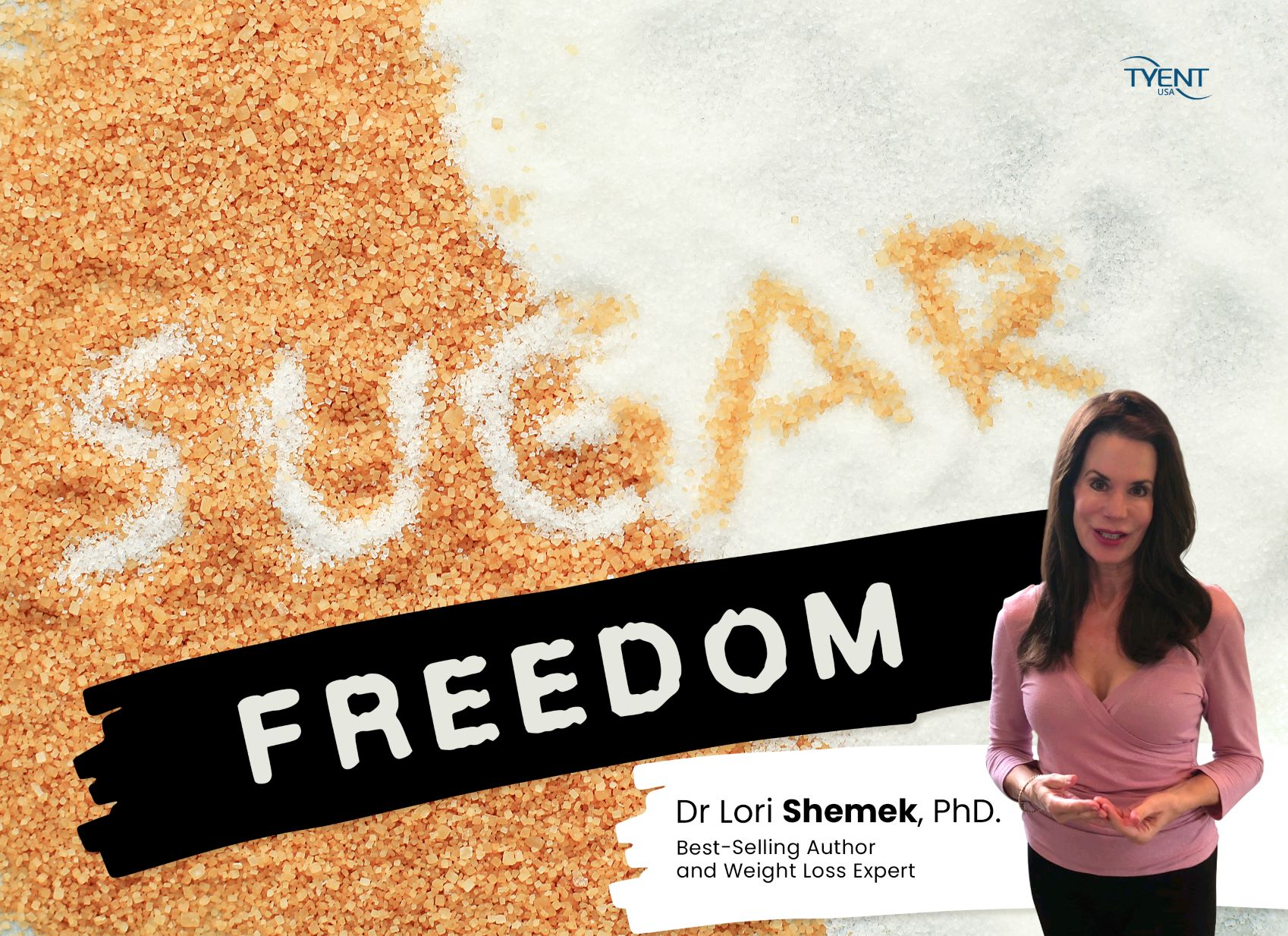Dr. Lori Shemek is back again to share 8 Tips to Sleep Better Tonight. Dr. Lori is the best-selling author of books such as The Ketogenic Key, Fire Up Your Fat Burn and Beginner’s Guide to Intermittent Fasting. Dr. Lori is a certified nutritional consultant and weight loss expert who spreads awareness of the negative effects of inflammation.

Millions of men and women struggle with getting quality sleep each night. Sleep plays a critical role in how much we weigh, memory, learning, immunity, mental well-being, stress level and other vital bodily functions.
Tossing and turning all night may burn a lot of calories but in the end, drives one to crave sweets and carbs.. ultimately driving one to eat more the next day. Research shows just one night of poor sleep promotes an increase in sugary foods the following day.
So what can we do to ensure we sleep well and protect our health? Check out these 8 tips!
Hydrate!
Being adequately hydrated is essential for ensuring your body functions as it should — and not just during the day
There is a relationship between low hydration status and less than optimal sleep.
Other ways inadequate hydration can affect sleep:
- Muscle Spasms (muscle is 76% water)
- Muscle Cramping
- Headaches
- Thirst
- Dry Mouth
Ensure when you do drink water that it is a healthy form and at the very least filtered. Unhealthy water such as type water is acidic and contains toxins.
Stick to a Sleep Schedule
Creating a sleep schedule will have a huge impact on your daily life. Watching Netflix into the early morning hours won’t cut it. Most healthy adults need on average 7-9 hours of sleep each night to function optimally. The quantity of sleep you get is important, sure, but it’s the quality of your sleep that you really have to pay attention to.
Avoid Alcohol
While alcohol will help you to fall asleep, staying asleep is another matter. Alcohol interferes with our circadian rhythm and the production of adenosine (a sleep-inducing chemical in the brain) is released, helping to quickly fall asleep. Alcohol also prevents the quality of sleep by preventing REM sleep – necessary to function optimally. Additionally, delta activity, the deep restorative sleep pattern is compromised due to poor sleep rhythms.
Sleep in a Dark and Cool Room
Too much light and heat can disrupt body clock rhythm. Sleeping in as dark a room as possible is vital and without excess heat. Research has shown that when our core body temperature drops, better sleep ensues. However, too cold will have the opposite effect.
Certain types of insomnia are related to body temperature irregularities. Avoid eating particularly a big meal before bedtime as this can raise your body temperature.
One perk of sleeping in a cooler room is that it helps to optimize your health. Research has found that sleeping in cool temperatures of 66F stimulated brown fat growth compared to 75F and 80.6F. Brown fat is excellent for health, particularly weight loss.
Expose Yourself to Bright Sunlight
The first thing in the morning, within an hour of waking, expose yourself to direct full-spectrum sunlight (not through glass) to help boost serotonin and ultimately set your circadian rhythm for a good night’s sleep. Serotonin is also a precursor to melatonin. Melatonin is needed for deep restorative sleep.
If you are struggling to sleep well at night, especially with insomnia or a circadian rhythm disorder, try regularly exposing yourself to morning sunlight.
Put Away the Phone and Laptop
Light in the bedroom affects our sleep quality, particularly blue light emitted from laptops, phones, television, e-readers, etc. These appliances suppress the production of melatonin and send the message that it is daylight.
Stop all blue light devices 90 minutes before sleep. The more light you can remove from your space, the better quality sleep you will get.
Exercise
Exercise is excellent for overall health and mental well-being. However, research shows exercise decreases sleep complaints and insomnia. Exercise – a natural sleep aid, may also reduce insomnia by reducing and protecting against the negative effects of stress, anxiety, and depressive symptoms.
Simply getting just 10 minutes of exercise can dramatically improve sleep quality, particularly when consistent.
Avoid Sugar & Refined Carbs
Evidence shows eating an excess amount of sugar and refined, processed foods reduces sleep quality leading to restless and wakeful periods. Inflammation is also at play with regard to insomnia. When inflammation is prevalent in any form, elevated inflammatory molecules such as cytokine-1 and higher levels of cortisol -that promote alertness, will contribute to insomnia. Additionally, inflammation is a by-product of sugar and refined food choices.
Choose a diet that is nutrient-rich along with healthy fats and quality proteins.
Recommended Reading | Dr. Lori’s Vault









